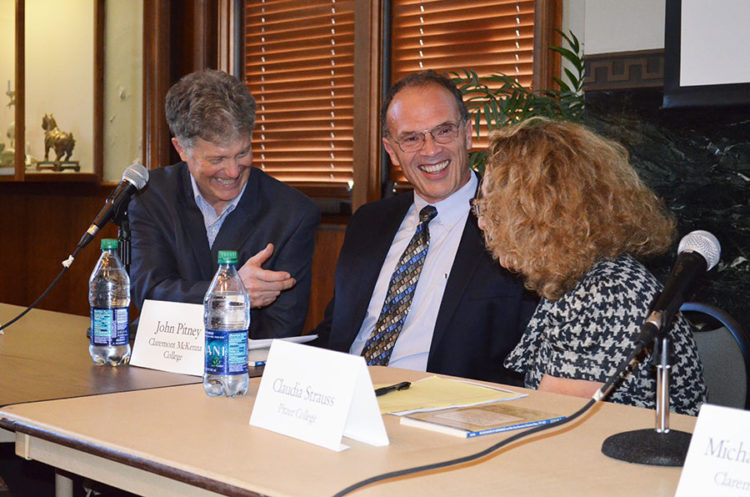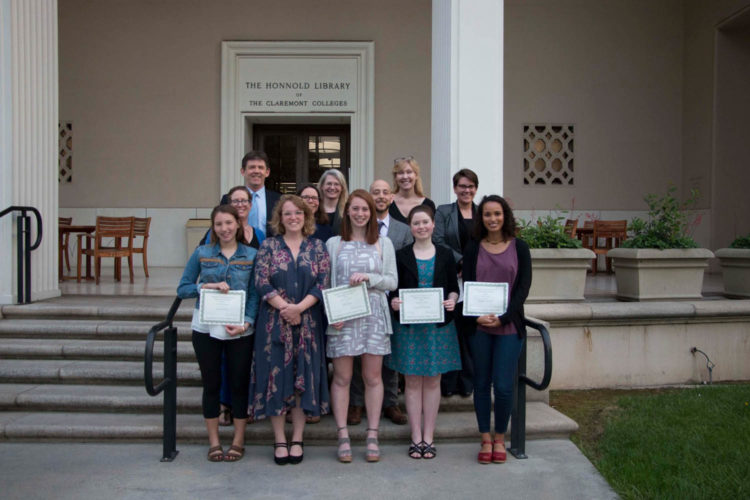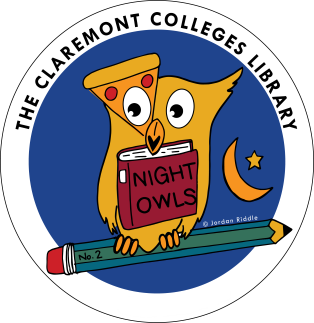Programs
The Library offers a series of Signature Programs that enable discovery and engagement across a rich portfolio of collections, academic collaborations with librarians, faculty, and students.
 The Claremont Discourse faculty lecture series brings together faculty panelists to discuss a series of topics. The series follows a new theme each semester to engage faculty, students, and the community in conversations surrounding focused topics. A few series examples include: Claremont Discourse Goes to the Elections, Social Justice and the Environment, and The Changing Landscape of Media.
The Claremont Discourse faculty lecture series brings together faculty panelists to discuss a series of topics. The series follows a new theme each semester to engage faculty, students, and the community in conversations surrounding focused topics. A few series examples include: Claremont Discourse Goes to the Elections, Social Justice and the Environment, and The Changing Landscape of Media.

The Library Undergraduate Research Award (LURA) recognizes undergraduate students who demonstrate exemplary original research and scholarship, including remarkable skill and creativity in the use of library and information resources as evidenced in the Reflective Essay and the research product. Submissions are accepted in 6 award categories: first-year, sophomore, junior, senior, Seymour music, and group.
 Night Owls is The Claremont Colleges Library finals-week programming, activities, and events. The goal of Night Owls is to provide opportunities for students to take brain breaks, de-stress, relax, and win prizes! Typically, Library staff keep the building open 24 hours during this time and provide frequent snacks, stress breaks, and activities to support Claremont Colleges students as they complete their final projects and study for exams.
Night Owls is The Claremont Colleges Library finals-week programming, activities, and events. The goal of Night Owls is to provide opportunities for students to take brain breaks, de-stress, relax, and win prizes! Typically, Library staff keep the building open 24 hours during this time and provide frequent snacks, stress breaks, and activities to support Claremont Colleges students as they complete their final projects and study for exams.
 Open Access (OA), as defined in the Berlin Declaration, means unrestricted, online access to peer-reviewed, scholarly research papers for reading and productive re-use, not impeded by any financial, organizational, legal or technical barriers. Ideally, the only restriction on use is an obligation to attribute the work to the author. Our Open Access program brings faculty and librarians together to explore and engage with existing resources as well as learn how to create and add Open Access resources to the OA community.
Open Access (OA), as defined in the Berlin Declaration, means unrestricted, online access to peer-reviewed, scholarly research papers for reading and productive re-use, not impeded by any financial, organizational, legal or technical barriers. Ideally, the only restriction on use is an obligation to attribute the work to the author. Our Open Access program brings faculty and librarians together to explore and engage with existing resources as well as learn how to create and add Open Access resources to the OA community.